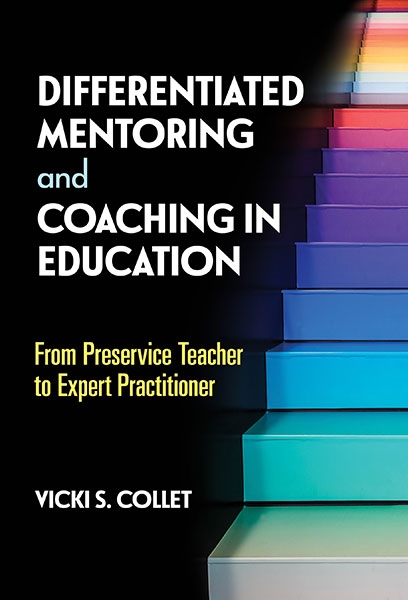Amid the national teacher shortage, associate professor Vicki Collet's new book details teacher mentoring methods to prepare more sustainable and effective educators.
Differentiated Mentoring and Coaching in Education: From Preservice Teacher to Expert Practitioner is Collet's second Teachers College Press book publication, following Collaborative Lesson Study. She has also published scholarly articles on both coaching and lesson study. The Language of Literacy Education, a volume Collet edited, was published by Brill.
As part of the book launch, a workshop on the Gradual Increase of Responsibility (GIR) Model for Mentoring and Coaching will be offered on Sept. 13 from 4:30 to 6 p.m. in Peabody Hall, room 318, on the U of A campus. There is no charge for the workshop, but spots are limited, and registration is required. The workshop is designed for anyone who plays a mentoring or coaching role in K-12 schools or higher education.
Collet is a teacher educator for literacy learning in the Department of Curriculum and Instruction and is associate director of the Northwest Arkansas Writing Project. She studies in-service and preservice teacher education and professional development, focusing on instructional coaching and mentoring.
Collet's newest book introduces the GIR Model as a mentoring strategy to personalize the support coaches provide teachers to accommodate their varying levels of experience. She said the research-developed model is conceptually simple and offers five types of interactions that coaches can choose from based on how much support a teacher may need. They include modeling, making recommendations, asking questions, affirming and offering praise. Affirming differs from offering praise by whether the teacher looks to the mentor seeking affirmation versus mentors offering unsolicited praise to reinforce good practices.
Collet hopes these tools will help coaches clarify and expand their moves and think more intentionally about how to use them. While some coaching methods advise against offering praise, Collet said the GIR Model was formed by watching what effective coaches do. Praise is a common tool to boost confidence and rapport with teachers.
"At a time when so many teachers are choosing to leave the profession they love for a variety of reasons, praise and affirmation can make a difference," she said in her book launch video. "I truly believe that teachers need to have the good things they are doing noticed, and that's one of the things that will keep them in the profession."
For more information about the Sept. 13 workshop or the GIR Model, please contact Collet at collet@uark.edu.
Topics
Contacts
Maggie Green, COEHP communications intern
College of Education and Health Professions
479-575-3138,
Shannon Magsam, director of communications
College of Education and Health Professions
479-575-3138,
